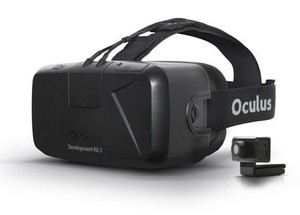Virtual Reality: Difference between revisions
| Line 27: | Line 27: | ||
{{Editor steps|title=set up the Oculus Rift DK2|Download runtime|Execute installer|Connect Oculus Rift DK2|Use the Configuration Utility from the task bar to set up the DK2 to the user specifications|Select '''Extended Desktop''' as display in the Display options on the task bar}} | {{Editor steps|title=set up the Oculus Rift DK2|Download runtime|Execute installer|Connect Oculus Rift DK2|Use the Configuration Utility from the task bar to set up the DK2 to the user specifications|Select '''Extended Desktop''' as display in the Display options on the task bar}} | ||
<br> | |||
{{Editor steps|title=run the Tygron Platform on the Oculus Rift DK2|Boot Tygron Platform client| In main menu, select Options|Select Test my Hardware|Check the Experimental Oculus DK2 Mode|Start a project in Single or Mulri User mode|In the project main view, press Ctrl-Shft-O}} | {{Editor steps|title=run the Tygron Platform on the Oculus Rift DK2|Boot Tygron Platform client| In main menu, select Options|Select Test my Hardware|Check the Experimental Oculus DK2 Mode|Start a project in Single or Mulri User mode|In the project main view, press Ctrl-Shft-O}} | ||
Revision as of 12:10, 18 October 2019
| Warning: VR functionality is not fully implemented yet and is still experimental. It is not advised to implement this functionality in critical projects. Please use only for testing purposes. |
What is Virtual Reality (VR)?
From Wikipedia, the free encyclopedia
Virtual reality (VR) is a simulated experience that can be similar to or completely different from the real world. Applications of virtual reality can include entertainment (i.e. gaming) and educational purposes (i.e. medical or military training). Other, distinct types of VR style technology include augmented reality and mixed reality.
Currently standard virtual reality systems use either virtual reality headsets or multi-projected environments to generate realistic images, sounds and other sensations that simulate a user's physical presence in a virtual environment. A person using virtual reality equipment is able to look around the artificial world, move around in it, and interact with virtual features or items. The effect is commonly created by VR headsets consisting of a head-mounted display with a small screen in front of the eyes, but can also be created through specially designed rooms with multiple large screens. Virtual reality typically incorporates auditory and video feedback, but may also allow other types of sensory and force feedback through haptic technology.
See also: https://en.wikipedia.org/wiki/Virtual_reality
Implementation of VR in the Tygron Platform
VR is implemented on the Tygron Platform in an experimental setup. Currently the following is needed:
- A PC with HIGH or above settings (EXTREME settings are recommended)
- Windows 7
- An Oculus Rift DK2 (consumer Rifts or other brands are not supported and tested)
- Oculus Runtime 0.4.2 (Download)
- Suppported Tygron Platform Client (LTS or Preview)
Using VR on the Tygron Platform
To use VR on the Tygron Platform, please follow the below instructions:
- Download runtime
- Execute installer
- Connect Oculus Rift DK2
- Use the Configuration Utility from the task bar to set up the DK2 to the user specifications
- Select Extended Desktop as display in the Display options on the task bar
- Boot Tygron Platform client
- In main menu, select Options
- Select Test my Hardware
- Check the Experimental Oculus DK2 Mode
- Start a project in Single or Mulri User mode
- In the project main view, press Ctrl-Shft-O
